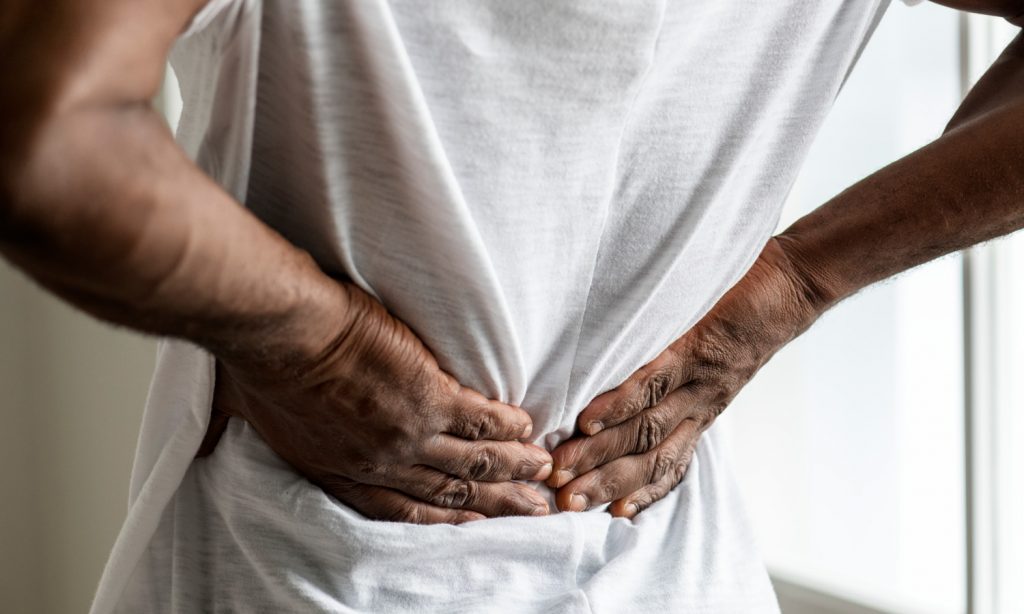By The Fresh Toast's Brendan Bures, provided exclusively to Benzinga Cannabis.
A new study found precise doses of THC administered via inhaler were effective in reducing pain in neuropathy patients.
Marijuana’s therapeutic effects for chronic pain patients are well-known. Cannabis reduces inflammation and muscle pain, eases neuropathic pain, and helps pain patients achieve a better night’s sleep. Dosing, on the other hand, is far from standardized.
A 2018 study suggested three puffs a day would keep the pain away. Meanwhile, a study from earlier this year reported that 70-90% of legal marijuana products contain THC levels too strong for effective, long-term pain relief. Now, a new clinical trial may provide more rigorous answers in treating complex pain conditions.
A study led by a team of Israeli scientists, published earlier this month in the European Journal of Pain, found precise doses of THC administered via inhaler were effective in reducing pain in neuropathy patients. The randomized placebo-controlled study divided 27 chronic pain patients into three groups: One group received a 1mg THC dose, the second was given a 0.5mg THC dose, and the third had a placebo.
“Both doses, but not the placebo, demonstrated a significant reduction in pain intensity compared with baseline and remained stable for 150-minutes,” the researchers wrote. “The 1mg dose showed a significant pain decrease compared to the placebo. Adverse events were mostly mild and resolved spontaneously. There was no evidence of consistent impairments in cognitive performance.”
RELATED: Study: Legalizing Marijuana Results In Major Tourism Spike
One of the biggest results, researchers noted, was that this method could assist with individualized medical marijuana prescriptions for patients in the future.

Photo by Ake via rawpixel.com
“This feasibility trial demonstrated that a metered-dose cannabis inhaler delivered precise and low THC doses [that] produced a dose-dependent and safe analgesic effect in patients with neuropathic pain/complex-regional pain syndrome (CRPS),” researchers wrote. “Thus, it enables individualization of medical cannabis regimens that can be evaluated pharmacokinetically and pharmacodynamically by accepted pharmaceutical models.”
RELATED: MDMA-Assisted Therapy For PTSD Likely To Get FDA Approval By 2022
Previous clinical trials have also tested metered-dose cannabis inhalers as a future tool in medicinal settings. Data from these clinical trials showed novel inhaler devices reduced pain symptoms while displaying minimal adverse effects.
This research could prove vital for administering THC doses to hospitalized patients, because, as a 2019 clinical trial found, combustible marijuana is not acceptable for hospital settings.
photo by Andrea Piacquadio via Pexels
Noticias sobre cannabis en Español en El Planteo.
© 2025 Benzinga.com. Benzinga does not provide investment advice. All rights reserved.
Trade confidently with insights and alerts from analyst ratings, free reports and breaking news that affects the stocks you care about.
Cannabis is evolving – don’t get left behind!
Curious about what’s next for the industry and how to leverage California’s unique market?
Join top executives, policymakers, and investors at the Benzinga Cannabis Market Spotlight in Anaheim, CA, at the House of Blues on November 12. Dive deep into the latest strategies, investment trends, and brand insights that are shaping the future of cannabis!
Get your tickets now to secure your spot and avoid last-minute price hikes.